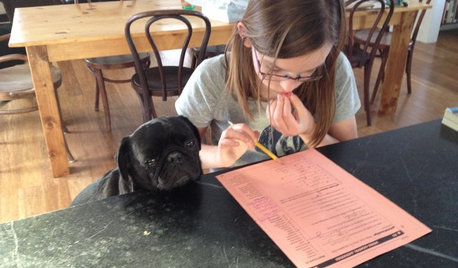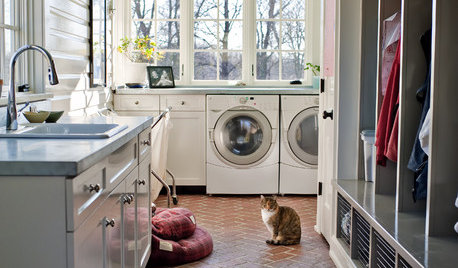The more I read, the more I get confused????
jbest123
16 years ago
Related Stories

COLORBedroom Color: The Secret to More Sex and More Sleep
Look to surprising revelations about bedroom wall colors to get more of what you want
Full Story
COLORWant More Color in Your Home? Here’s How to Get Started
Lose your fear of dabbling in new hues with these expert words of advice
Full Story
HOUSEKEEPINGThree More Magic Words to Help the Housekeeping Get Done
As a follow-up to "How about now?" these three words can help you check more chores off your list
Full Story
LIFEYou Said It: ‘I Knew This Home Had to Be Mine’ and More Quotables
Design advice, inspiration and observations that struck a chord this week
Full Story
LIFEYou Said It: ‘I’m Never Leaving’ and More Houzz Quotables
Design advice, inspiration and observations that struck a chord this week
Full Story
INSIDE HOUZZ9 Power-User Tricks to Get More From Houzz
Search faster and better, tap into design guides, manage your ideabooks and see photos on your flat-screen TV
Full Story
DECORATING GUIDESGet More Mileage From Your Coffee Table Books — as Decorating Elements
Take a page from resourceful decorators by using your gorgeous books in design-savvy ways around the home
Full Story
SMALL SPACESGetting a Roommate? Ideas for Making Shared Spaces More Comfortable
Here are tips and tricks for dividing your space so everyone gets the privacy they need
Full Story
LAUNDRY ROOMSGet More From a Multipurpose Laundry Room
Laundry plus bill paying? Sign us up. Plus a potting area? We dig it. See how multiuse laundry rooms work harder and smarter for you
Full Story
BEDROOMSGet More From Your Bed (Storage, for Starters)
Find space for all your stuff — and maybe even a seat, a writing desk or another sleep spot — by cozying up to a multipurpose bed
Full Story







duluthinbloomz4
gardenlen
Related Professionals
Clermont Landscape Contractors · Brooklyn Park Landscape Contractors · Brunswick Landscape Contractors · Dunwoody Landscape Contractors · Lantana Landscape Contractors · New Berlin Landscape Contractors · Olympia Landscape Contractors · Tamarac Landscape Contractors · University City Landscape Contractors · Adrian Decks, Patios & Outdoor Enclosures · Leander Decks, Patios & Outdoor Enclosures · Manchester Decks, Patios & Outdoor Enclosures · Provo Decks, Patios & Outdoor Enclosures · Shirley Decks, Patios & Outdoor Enclosures · White Bear Lake Decks, Patios & Outdoor Enclosuresdorisl
jbest123Original Author
gardengal48 (PNW Z8/9)
madmagic
bcomplx
shellva
Kimmsr
kqcrna
gardeningduke
blutranes
robertz6
queuetue
bob64
led_zep_rules
lehua49